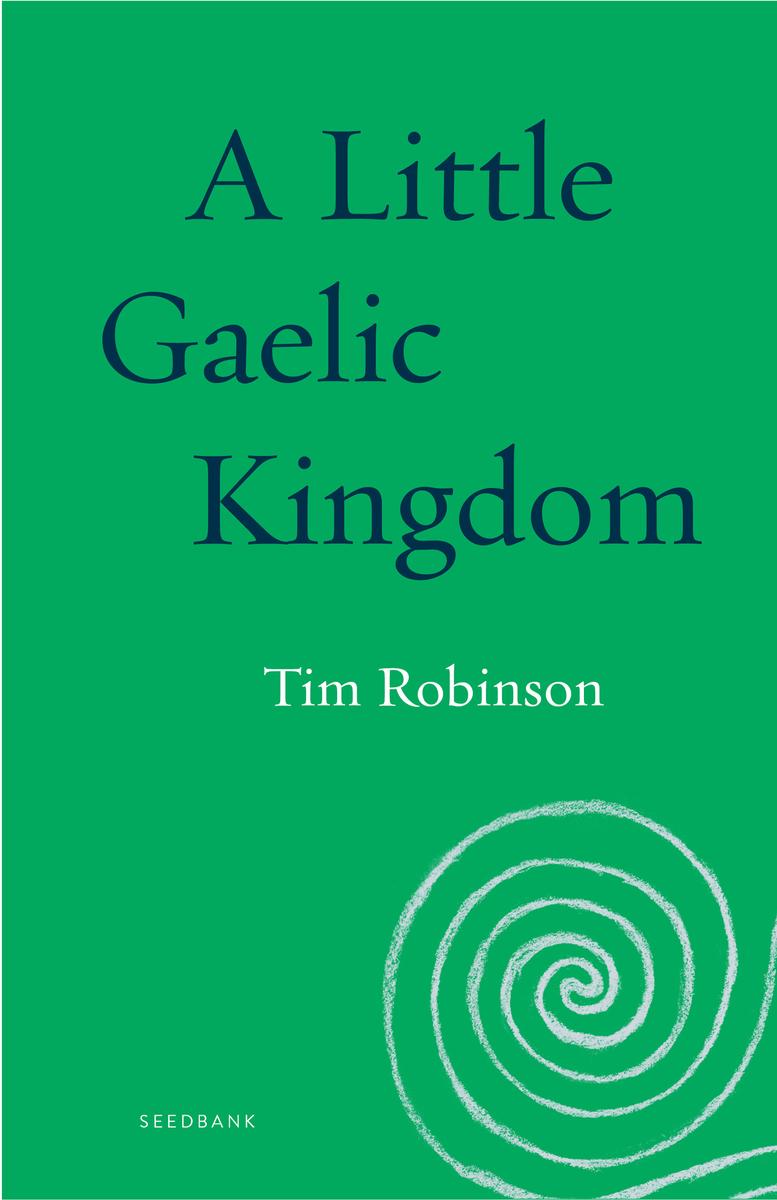
Publish Date |
February 28, 2025 |
Category |
Nature Literary Collections / European / English, Irish, Scottish, Welsh |
Price |
$30.95 |
“A masterpiece of travel and topographical writing, and an incomparable and enthralling meditation on times past.”—John Banville
“He knows this world as no one else does, and writes about it with awe and love, but also with measured grace, an artist's eye and a scientist's sensibility.”—Colm Tóibín
In its landscape, history, language, and folklore, the Connemara region on Ireland’s wild and windswept West Coast is a dramatic and breathtaking place. From its fabled villages, seaside cliffs, bogs, lakes, coral beaches, stark mountains, and ever-meandering country roads lined with stone walls, this rugged kingdom surprises and inspires, and nobody knows this more than artist, cartographer, and celebrated writer Tim Robinson.
In A Little Gaelic Kingdom, Robinson brings this enchanting Irish peninsula rapturously to life. Setting off, he embarks on a walking journey, traversing and exploring the natural world, while revealing the history, mystery, language, and people that have indelibly shaped this much-mythologized countryside. From the glacial valley of Maam to the fishing villages and rocky shorelines of the region’s archipelago, Robinson carries encyclopedic knowledge, great curiosity, and a deep love of place and its inhabitants with him on this engaging and evocative journey.
Beautifully crafted and intimately rendered, A Little Gaelic Kingdom is a timeless and revelatory work of travel and nature writing.
ISBN: 9781571313737
Format: Paperback
Pages: 432
Publisher: Milkweed Editions
Published: February 28, 2025
Praise for Tim Robinson
“Many landscape writers have striven to give their prose the characteristics of the terrain they are describing. Few have succeeded as fully as Tim Robinson.”—Robert Macfarlane, author of Underland“[Robinson’s] work is reminiscent of that of some early explorers and geographers in its painstaking exactitude. But instead of bringing back the record of a hitherto unknown terrain, he is resurrecting the ignored or forgotten from under our feet. He attends to wildflowers, heathers, pollens, and to phenomena ranging from the cemeteries of unbaptized babies to the mythology of hares. His scientific rigor is suffused by a marveling poetry.”—New York Review of Books“Visitors to Connemara, that expanse of stony beauty in the west of Ireland, are often struck by its stillness. One of the most eloquent readers of that silence is the Yorkshire-born writer Robinson, whose new collection of essays succeeds in the difficult task of staying true to the verities of a place on to which so many fantasies have been projected. [. . .] Robinson writes with lapidary precision about a landscape so frequently shrouded in cliché that its unmediated truths are often invisible.”—The Guardian“Robinson is a stylist of exceptional cadence, tact and ingenuity. [. . .] At their most intricate, measured and exalting, his sentences sound like the sermons of John Donne, or the elaborate essays of Sir Thomas Browne. And yet: there is nothing antiquarian about this style; it may echo the voices of the great writers who have passed before him—Roderick O’Flaherty in the 17th century, Thackeray in the 19th—but Robinson’s is a medium woven as much out of modern environmental science, land art and fractal geometry as it is from the sonorous periods of the past.”—The Telegraph (UK)